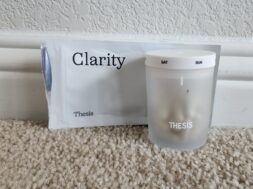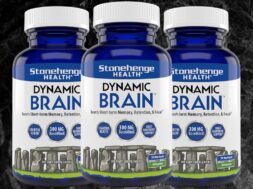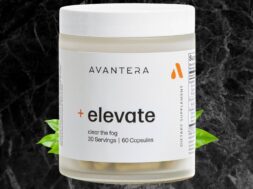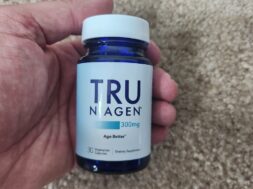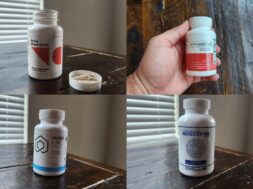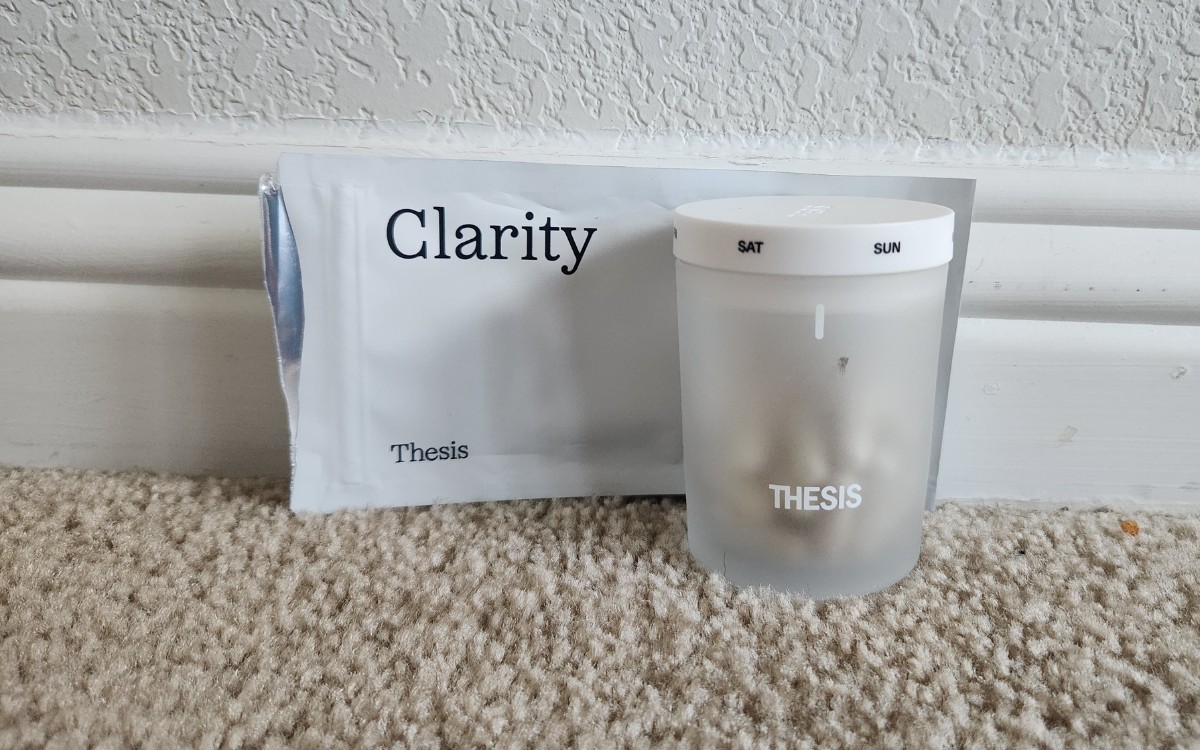
The comparison between Thesis Clarity and Adderall represents two fundamentally different approaches to cognitive enhancement. One is a personalized nootropic supplement targeting natural brain optimization, while the other is a powerful prescription stimulant with proven but potentially serious effects.
Having experience with various cognitive enhancers and extensive research into both options, I can tell you the choice isn’t straightforward.
Let me break down everything you need to know about these two options, including their mechanisms, effectiveness, safety profiles, and whether either deserves a place in your cognitive enhancement toolkit.
Quick Verdict
Thesis Clarity and Adderall operate in completely different categories. Adderall is a prescription amphetamine with immediate, powerful effects on focus and attention, but comes with significant side effects, addiction potential, and legal restrictions.
Thesis Clarity provides mild to moderate cognitive benefits through natural ingredients, offering a safer but less dramatic approach to mental enhancement.
For those seeking legitimate cognitive enhancement without prescription requirements or stimulant dependence, Mind Lab Pro emerges as the superior choice.
With 11 clinically-dosed ingredients backed by University of Leeds research, Mind Lab Pro delivers comprehensive brain support at $69 monthly, providing better value and more robust cognitive enhancement than Thesis Clarity.
| Feature | Winner |
|---|---|
| Ingredients | N/A |
| Dosage | N/A |
| Short-Term Effects | Adderall |
| Long Term Effects | Thesis |
| Third-Party Testing | Adderall |
| Clinical Research | Adderall |
| Side Effects | Thesis |
| User Reviews | Adderall |
| Price | Adderall |
Quick Verdict
Based on my experience with each nootropic supplement, neither Thesis nor Adderall hold a light to Mind Lab Pro.
Mind Lab Pro has 3 clinical studies backing it’s formula and is a non-stimulant nootropric to enhance short and long term brain function.
What Is Thesis Nootropics?
Thesis Nootropics is a personalized supplement company that creates targeted cognitive blends based on individual assessments. Founded in 2017 by Dan Freed, the company positions itself as offering “personalized nootropics” rather than one-size-fits-all formulas. Their approach centers on a brief online quiz that matches users to specific blends targeting different cognitive goals.
The company offers 4 different formulations: Clarity (focus), Stress Reset, Neuroprotection, and Motivation (drive).
Each blend contains 4-7 ingredients selected from their library of nootropic compounds, with optional caffeine inclusion based on user preference.
Thesis Clarity, their flagship focus blend, targets mental clarity and flow states through ingredients designed to enhance acetylcholine production and reduce brain fog. You can read my experience in my Thesis nootropics review.
Pros:
- Personalized approach based on individual assessment
- Transparent ingredient labeling with disclosed dosages
- Optional caffeine inclusion for stimulant-sensitive users
- Money-back guarantee within 30 days
- Professional coaching support included
- Quality third-party testing for purity and potency
Cons:
- High cost compared to comprehensive alternatives
- Limited ingredient profile focusing on single cognitive area
- Effectiveness relies heavily on caffeine for noticeable effects
- Subscription model strongly favored over one-time purchases
What Is Adderall?
Adderall is a prescription medication containing a precise combination of amphetamine salts: dextroamphetamine saccharate, amphetamine aspartate, dextroamphetamine sulfate, and amphetamine sulfate.
The FDA approved it in 1996 for treating Attention Deficit Hyperactivity Disorder (ADHD) and narcolepsy, making it one of the most prescribed stimulant medications in the United States.
The medication comes in immediate-release (lasting 4-6 hours) and extended-release formulations (lasting 10-12 hours), with dosages typically ranging from 5mg to 30mg based on medical supervision.
As a Schedule II controlled substance, the same classification as cocaine and methamphetamine, Adderall carries significant regulatory restrictions due to its high potential for abuse and dependence.
Adderall transforms brain chemistry by dramatically increasing dopamine and norepinephrine levels, neurotransmitters crucial for attention, focus, and executive function. For individuals with ADHD, this medication can be life-changing, helping restore normal cognitive function and improving quality of life substantially.
Pros:
- Proven effectiveness backed by decades of clinical research
- Immediate, powerful enhancement of focus and attention
- FDA-approved with established safety protocols
- Dramatic improvement in ADHD symptoms for 70-80% of patients
- Consistent effects due to pharmaceutical-grade manufacturing
Cons:
- Significant side effects including appetite suppression, insomnia, and cardiovascular stress
- High potential for tolerance, dependence, and abuse
- Requires ongoing medical supervision and regular appointments
- Legal restrictions and controlled substance regulations
- Can cause anxiety, irritability, and mood changes
- Expensive without insurance coverage
How Adderall Works in Your Brain
Adderall functions through a sophisticated mechanism targeting the brain’s reward and attention systems. The medication blocks the reuptake of dopamine and norepinephrine while simultaneously promoting their release from nerve terminals.
This dual action creates a flood of these crucial neurotransmitters in brain regions responsible for executive function, attention, and impulse control.
The amphetamine salts in Adderall essentially hijack your brain’s natural reward circuitry. By artificially elevating dopamine levels, particularly in the prefrontal cortex and striatum, the medication forces intense focus and attention. This explains both its therapeutic benefits and its addiction potential.
Unlike natural supplements that gradually support neurotransmitter production, Adderall creates immediate chemical changes lasting several hours. The medication’s effects are dose-dependent and can be precisely controlled, but this pharmaceutical approach comes with corresponding risks, including tolerance development and withdrawal symptoms when discontinued.
Thesis Clarity vs. Adderall Main Differences
Benefits
Thesis Clarity Benefits:
- Moderate improvement in mental focus and clarity
- Reduced brain fog, particularly when combined with caffeine
- Enhanced verbal fluency during presentations and conversations
- Smoother energy without the harsh stimulant edge
- Minimal side effects with proper dosing
- No prescription requirements or legal restrictions
Adderall Benefits:
- Dramatic, immediate enhancement of focus and concentration
- Powerful improvement in task completion and follow-through
- Significant boost in motivation and drive
- Enhanced working memory and processing speed
- Proven effectiveness for ADHD symptom management
- Precise dose control under medical supervision
The magnitude difference is substantial. Adderall produces unmistakable, pharmaceutical-grade cognitive enhancement within 30-60 minutes, while Thesis Clarity offers subtle improvements that may take weeks to fully manifest. However, Adderall’s benefits come with correspondingly higher risks.
Ingredients
Thesis Clarity Ingredients (Current Formula):
Lion’s Mane (Fruiting Body) – 500mg: A medicinal mushroom containing hericenones and erinacines that promote nerve growth factor (NGF) production. Research suggests potential benefits for cognitive function and neuroprotection, though human studies remain limited. The 500mg dose aligns with supplement research, though higher doses are often used in clinical studies.
CDP Choline (Citicoline) – 250mg: A precursor to acetylcholine, the neurotransmitter crucial for learning and memory. Clinical research supports citicoline for cognitive enhancement, particularly in older adults. The 250mg dose falls within the therapeutic range, though optimal benefits often require 500-1000mg daily.
Vitamin B6 – 5mg: Essential for neurotransmitter synthesis, including dopamine and serotonin. While important for brain function, the 5mg dose provides basic support rather than therapeutic cognitive enhancement.
Panax Ginseng Extract – 200mg (standardized to 15% ginsenosides): An adaptogenic herb traditionally used for cognitive enhancement and stress resistance. Some studies support modest improvements in mental performance, though effects vary significantly between individuals.
7,8-Dihydroxyflavone – 30mg: A synthetic compound that mimics brain-derived neurotrophic factor (BDNF), potentially supporting neuroplasticity and cognitive function. However, questions remain about oral bioavailability and effectiveness in humans.
Caffeine – 100mg (Optional): Equivalent to one cup of coffee, providing the most noticeable short-term effects in the formula. Well-researched for focus and alertness enhancement.
Adderall Ingredients:
Adderall contains precisely controlled pharmaceutical amphetamine salts in a 3:1:1:1 ratio:
- Dextroamphetamine Saccharate
- Amphetamine Aspartate
- Dextroamphetamine Sulfate
- Amphetamine Sulfate
These compounds work synergistically to optimize therapeutic effects while minimizing side effects. Every milligram is manufactured under FDA oversight with strict quality controls, ensuring consistent potency and purity. Unlike supplements, the active ingredients undergo extensive pharmacokinetic testing to determine optimal absorption, distribution, and elimination.
Stimulant vs. Non-Stimulant
This represents perhaps the most fundamental difference between these options. Adderall is an intensive central nervous system stimulant with pronounced effects on heart rate, blood pressure, and neurological function. Users typically experience elevated heart rate, increased blood pressure, and heightened alertness that can interfere with sleep and relaxation.
Thesis Clarity occupies middle ground as a “mild stimulant” option. The optional 100mg of caffeine provides gentle stimulation equivalent to a cup of coffee, while ingredients like Lion’s Mane and CDP Choline work through non-stimulant pathways. Users can opt for the stimulant-free version entirely, relying on natural cognitive enhancement without any stimulant effects.
The stimulant distinction affects everything from onset timing and effect duration to side effect profiles and long-term safety considerations.
Short vs. Long-Term Effects
Adderall:
- Short-term: Immediate, powerful cognitive enhancement beginning within 30-60 minutes and lasting 4-12 hours depending on formulation
- Long-term: Tolerance development requiring dose increases, potential cardiovascular effects, risk of dependence, and withdrawal symptoms when discontinued
Thesis Clarity:
- Short-term: Mild cognitive enhancement within 60-90 minutes, primarily from caffeine content, lasting 4-6 hours without harsh crashes
- Long-term: Potential cumulative benefits from Lion’s Mane and other nootropics after 4-8 weeks of consistent use, minimal risk of dependence or serious adverse effects
The temporal difference reflects their distinct mechanisms. Adderall forces immediate neurochemical changes while Thesis Clarity gradually supports natural brain optimization processes.
Clinical Research
Adderall possesses extensive clinical validation with hundreds of peer-reviewed studies documenting its safety and efficacy for ADHD treatment. The FDA approval process required rigorous multi-phase trials involving thousands of participants, establishing clear dosing protocols and monitoring guidelines.
Thesis Clarity as a complete formula lacks clinical validation. While individual ingredients like CDP Choline and Lion’s Mane have research support, the specific combination and dosages haven’t undergone controlled trials. The company acknowledges this limitation, with new studies evaluating their current formula planned for August 2025.
Individual ingredient research varies significantly. CDP Choline has solid clinical backing for cognitive enhancement, while compounds like 7,8-dihydroxyflavone remain largely experimental with limited human data.
Side Effects
Adderall Side Effects:
- Cardiovascular: Elevated heart rate, increased blood pressure, potential arrhythmias
- Sleep: Severe insomnia, disrupted sleep architecture, daytime fatigue
- Appetite: Significant appetite suppression, weight loss, nutritional deficiencies
- Psychiatric: Anxiety, irritability, mood swings, potential for psychosis at high doses
- Physical: Dry mouth, headaches, jaw clenching, muscle tension
- Addiction: Tolerance development, dependence, withdrawal syndrome
Thesis Clarity Side Effects:
- Mild: Occasional headaches during initial use, usually resolving within days
- Digestive: Rare gastrointestinal discomfort, particularly when taken without food
- Sleep: Mild sleep interference if taken after 2 PM due to caffeine content
- Individual: Rare allergic reactions to mushroom-based ingredients
The side effect profiles reflect the fundamental potency difference between pharmaceutical stimulants and natural supplements.
Availability
Adderall requires comprehensive medical evaluation including ADHD diagnosis, prescription from licensed healthcare provider, and ongoing monitoring.
As a Schedule II controlled substance, it cannot be automatically refilled and requires monthly pharmacy visits. International travel with Adderall requires documentation and may face restrictions in certain countries.
Thesis Clarity is available directly from the company’s website following a brief online assessment. No medical supervision required, though consulting healthcare providers before starting supplements remains advisable. The company ships internationally to most countries where the ingredients remain legal dietary supplements.
User Reviews
Adderall reviews divide sharply between prescribed patients and performance users. Prescribed users typically describe life-transforming improvements in focus, task completion, and quality of life.
Performance users often report initial euphoria and productivity gains followed by tolerance issues, side effects, and concerning dependency patterns.
Thesis Clarity reviews emphasize moderate improvements rather than dramatic transformation. Users frequently describe “subtle but meaningful” changes in mental clarity and reduced brain fog.
The coaching support receives consistent praise, with many users appreciating the personalized guidance for optimizing their experience.
Critical reviews of Thesis Clarity focus primarily on cost-effectiveness and subtle effects. Users expecting Adderall-level intensity often express disappointment, while those seeking gentle cognitive support tend toward more positive assessments.
Price
Thesis Clarity Pricing:
- 1 month supply (one-time purchase): $119
- 1 month supply (subscription): $79
- 3 month supply (subscription): $207
Adderall Pricing:
- With insurance: $10-50 monthly (plus medical appointments)
- Without insurance: $50-300 monthly (plus $150-200 monthly for psychiatrist visits)
- Total monthly cost with medical supervision: $160-500
The price comparison requires considering total cost of ownership. While Adderall appears cheaper with insurance, the required medical appointments significantly increase real costs.
Thesis Clarity includes coaching support and eliminates medical appointment requirements, potentially offering better value for users seeking cognitive optimization without treating a medical condition.
My Experience With Thesis Clarity And Adderall
I’ll be transparent about my limited experience with both, emphasizing that any Adderall use was brief and not something I’d recommend without proper medical supervision.
My Brief College Experience with Adderall: During my early twenties, like many college students, I occasionally used unprescribed Adderall during finals.
The cognitive transformation was undeniable, and within 45 minutes, scattered thoughts were organized into laser-focused attention. I could power through textbook chapters that normally left my mind wandering, maintain concentration during complex problem sets, and feel artificially motivated about mundane tasks.
The focus was intense but rigid. I once spent six hours reorganizing my entire digital file system instead of studying for my actual exam.
The physical effects were concerning: elevated heart rate even while sitting still, completely suppressed appetite, and sleep becoming nearly impossible even with doses taken at 7 AM.
The crash was brutal. Not just physical exhaustion, but a psychological defeat that made my natural cognitive abilities feel inadequate. More concerning was the subtle psychological pull to use it again, despite knowing the risks.
My Recent 6-Week Trial with Thesis Clarity: My experience with Thesis Clarity proved far more mundane but ultimately more sustainable. Following their recommended protocol, I took the caffeinated version each morning with breakfast, tracking effects in a simple journal.
Week one showed genuine promise. The combination felt smoother than my usual coffee routine, alertness without jitters. During morning video scripting and training sessions, I noticed slightly better focus and reduced tendency to check social media mid-paragraph.
By week three, I conducted a simple experiment: substituting my regular green tea (providing similar caffeine content) plus a standalone CDP Choline supplement.
The cognitive effects were remarkably similar, raising questions about whether I was paying premium pricing for essentially enhanced coffee with basic nootropic support.
The Lion’s Mane and other ingredients might provide cumulative benefits over longer periods, but after six weeks, I hadn’t experienced any breakthrough improvements in memory recall, creative thinking, or sustained attention that justified the monthly cost.
To be honest, Thesis Clarity provides mild cognitive enhancement primarily driven by its caffeine content, with potential longer-term benefits from other ingredients that remain difficult to distinguish from placebo effects.
Should You Take Thesis Or Adderall?
The answer depends entirely on your specific situation, but several critical considerations apply.
Never use Adderall without proper medical supervision. If you’re struggling with attention, focus, or productivity issues that are significantly impacting your life, consult a qualified healthcare provider for proper evaluation.
Using unprescribed Adderall is illegal, dangerous, and can lead to serious health consequences, including addiction, cardiovascular problems, and legal issues.
For those with diagnosed ADHD under medical care, Adderall may provide life-changing symptom relief that far outweighs its risks. The medication’s proven efficacy for this condition makes it an essential treatment option when properly prescribed and monitored.
Thesis Clarity might benefit users seeking mild cognitive optimization without prescription requirements or stimulant dependence.
However, the formula presents significant value concerns with several ingredients at potentially suboptimal doses. The $79 monthly cost primarily purchases premium caffeine delivery with nootropic support that could be replicated much more affordably.
For serious cognitive enhancement through supplements, Mind Lab Pro offers superior value. At $69 monthly, Mind Lab Pro provides 11 clinically-dosed ingredients backed by University of Leeds research, delivering comprehensive cognitive support without relying primarily on caffeine for effects.
Its stimulant-free formula supports focus, memory, clarity, and long-term brain health more completely than Thesis Clarity’s limited approach.
The cognitive enhancement landscape offers many options, but neither unprescribed Adderall nor overpriced limited nootropic blends represent optimal approaches for most people seeking mental performance improvements.
Mind Lab Pro
Mind Lab Pro Nootropic Brain Supplement
Non-Stimulant Nootropic For Instant Brain Boost
Boost brain power & reduce cognitive decline.
CHECK CURRENT DEALS